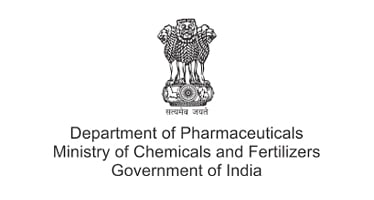Last Updated on April 21, 2021 by The Health Master
The drug industry has appealed to the Department of Pharmaceuticals (DoP) to allow all active pharmaceutical ingredients (APIs) / intermediates under category 2 of Rs. 15,000 crore production linked incentive (PLI) scheme as long as they are import substitution and there is domestic value addition of 70 per cent for chemical synthesis based bulk drugs and 90 per cent for fermentation based molecules.
To read more articles on PLI Scheme, click here
The appeal was made by industry stakeholders at a meeting held by DoP which is in the process of finalizing guidelines for the new PLI scheme.

Said BR Sikri, chairman, Federation of Pharma Entrepreneurs India (FOPE) and vice president, Bulk Drug Manufacturers Association (BDMA), “We welcome the new PLI scheme. The government wants 7 per cent growth year over year, we recommended there should be positive value addition because the turnover cannot be increased by the company as cost of the raw materials keeps varying.
We want the government to allow all APIs/intermediates in category 2 of the scheme instead of any specific molecule. We have also requested that one year gestation period is not sufficient as once the product is ready, we have to go for stability study, validation, documentation, etc.”
He said import substitution and product innovation and R&D efforts should be encouraged.
“We have also recommended that the earlier PLI scheme was a little cumbersome. New PLI should be made as simple as possible,” said Sikri.
BDMA wanted the new PLI scheme to be investor friendly. There are certain challenges in the scheme and the industry wanted that it should be addressed as soon as possible, so that more and more industry stakeholders can participate in the scheme, he added.
Yogin Mazumdar, chairman of Bulk Drug Committee, IDMA, said, “It is a good initiative of the government. Domestic value addition of 90 per cent in fermentation based APIs and 70 per cent in chemical synthesis based APIs announced in earlier PLI scheme should continue in the new PLI scheme.
Also read:
FAQs – On DPCO: Drugs (Prices Control) Order, 2013
3 held for hoarding Remdesivir Injection
Remdesivir not a magic bullet: AIIMS
Oxygen: Indian Oil Corporation to supply to hospitals in Haryana, Delhi,…
Oral dose of Remdesivir: Jubilant completes studies
Second wave of C-19 ‘less severe’ than the first: ICMR
It will encourage local production of high value APIs and make the country self-reliant in production of bulk drugs.”
“We have suggested that category 2 of new PLI scheme should be opened for all APIs, key starting materials, drug intermediates as long as they are import substitution and fall within 70 per cent and 90 per cent of domestic value addition criteria which were announced for chemical synthesis based APIs and fermentation based APIs respectively in earlier PLI scheme,” said Mazumdar.
Said Nipun Jain, chairman of Small and Medium Pharma Manufacturers Association (SMPMA), “It is a very good scheme initiated by Prime Minister Narendra Modi and DoP is carrying the torch. The new PLI scheme will cater to a bigger industry perspective and we welcome the same.”
The new PLI scheme is not meant for MSMEs. The scheme targets big players with big investment in API production.
The aim of the new PLI scheme worth Rs. 15,000 crore which was notified by DoP last month is to promote the existing brownfield API units in the country and give first priority to 20 molecules to be produced with scale thus beating Chinese imports.
The scheme which will be implemented from 2020-21 to 2028-29 is expected to boost high value products in the country and increase the value addition in exports.
The scheme covers pharmaceutical goods under three categories. Category 1 covers bio-pharmaceuticals, complex generic drugs, patented drugs or drugs nearing patent expiry, cell based or gene therapy drugs, orphan drugs, special empty capsules like HPMC, pullulan, enteric etc, complex excipients, phyto-pharmaceuticals.
Category 2 covers active pharmaceutical ingredients/key starting materials /drug intermediates and Category 3 covers drugs not covered under Category 1 and Category 2 such as repurposed drugs, autoimmune drugs, anti-cancer drugs, anti-diabetic drugs, anti- infective drugs, cardiovascular drugs, psychotropic drugs and anti- retroviral drugs, in-vitro diagnostic devices, other drugs as approved and other drugs not manufactured in India.
There are three groups of applicants. Their qualifying criteria are as follows- Group A: Applicants having global manufacturing revenue (FY 2019-20) of pharmaceutical goods more than or equal to Rs. 5,000 crore. Group B: Applicants having global manufacturing revenue (FY 2019-20) of pharmaceutical goods between Rs. 500 (inclusive) crore and Rs. 5,000 crore. Group C: Applicants having global manufacturing revenue (FY 2019-20) of pharmaceutical goods less than Rs. 500 crore. Within this group, a sub-group for the MSME industry will be made given their specific challenges and circumstances.
The total quantum of incentive (inclusive of administrative expenditure) under the scheme is about Rs. 15,000 crore which will be allocated among the target groups as follows- Group A: Rs. 11,000 crore, Group B: Rs. 2,250 crore and Group C: Rs. 1,750 crore.
In an earlier move, the government had approved Rs. 6,940 crore for 53 bulk drugs towards making the industry self-reliant and discouraging API imports.








